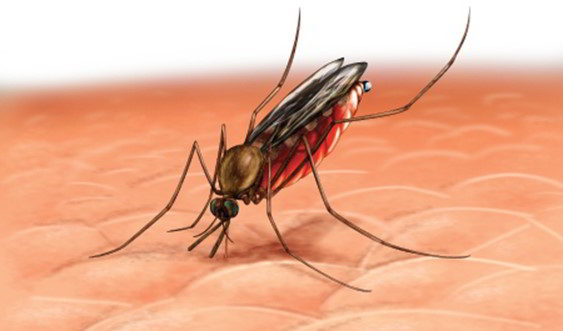More than 1 in every 3 people worldwide is influenced by malaria, a parasitic disease that results in the destruction of red blood cells. Malaria is spread by contaminated mosquitoes, which pass the parasite on through their stings.
In tropical countries, about 10 million new cases of malaria and 2 million deaths occur annually. Most of those who die from malaria are kids.
What Are The Symptoms?
The symptoms of malaria typically start between 10 days and 6 weeks after being bitten by an infected mosquito. Nevertheless, in some cases, symptoms may not develop for months or years, particularly when prophylactic drugs were being taken at the time of illness.
If not treated, malaria because of the plasmodium parasites – R vivax, R ovale and P. malariae – causes repeated attacks of symptoms each time the parasites multiply inside red blood cells and destroy them. Each attack typically continues for 4-8 hours and may occur at times of 2-3 days, determined by the species of parasite. Symptoms of an attack include:
- high temperature
- shivering and chills
- significant perspiration
- confusion
- tiredness, headaches and muscle pain
- dark brown pee.
Between each attack, extreme tiredness as a result of anaemia may be the only symptom. Falciparum malaria (caused by Plasmodium falciparum) causes a constant temperature which could be mistaken for flu. It’s more serious than the other kinds, and attacks may lead to loss of consciousness, cerebral malaria and kidney failure and may be lethal within two days of symptoms appearing if left untreated.
Self-Help
Preventing malaria
If your plan is to see an area where malaria occurs, your physician will have the ability to give you up to date guidance about antimalarial drugs for that region. You may have to begin taking the drugs several days before you leave and continue taking them during and after your visit. To shield yourself against mosquito bites, you should:
- Keep your body well covered.
- Sleep under a mosquito net that’s impregnated with insect repellent.
- Use insect repellent on clothing and exposed skin.
These measures against mosquito bites are particularly significant between twilight and dawn, when mosquitoes bite.
What Might Be Done?
Your physician may suspect malaria if you’ve got an unexplained temperature within a year of a trip to an area where the disease occurs. Identification is supported by identifying the malarial parasite in a blood smear under a microscope.
If you’re diagnosed with malaria, you should be given antimalarial drugs as early as possible to prevent complications. Treatment depends upon the kind of malaria, how immune the parasite is to drugs and the severity of the symptoms if you’ve got falciparum malaria
You might be treated in hospital with oral or intravenous antimalarial drugs. Treatment may also call for a blood transfusion to replace ruined red blood cells or kidney dialysis if kidney function is impaired. Other kinds of malaria are generally treated on an outpatient basis with oral antimalarial drugs.
If treated early, the prognosis is generally great, and most folks make a complete recovery. Malaria due to P. vivax and P. cvale may recur after treatment.


 (48 votes, average: 4.72 out of 5)
(48 votes, average: 4.72 out of 5)